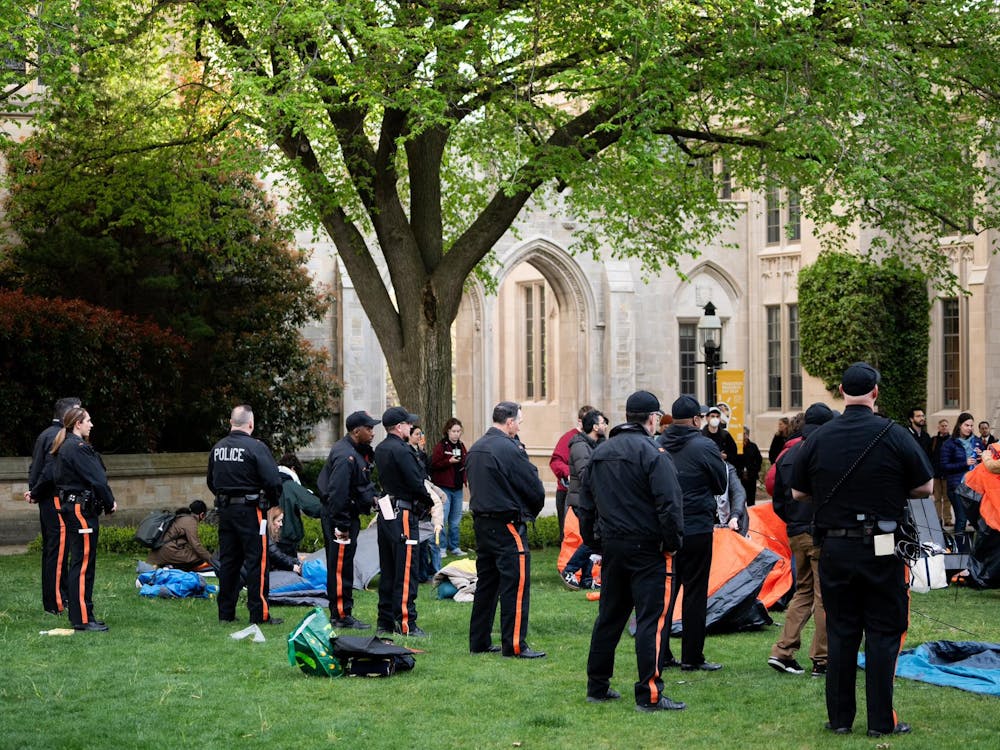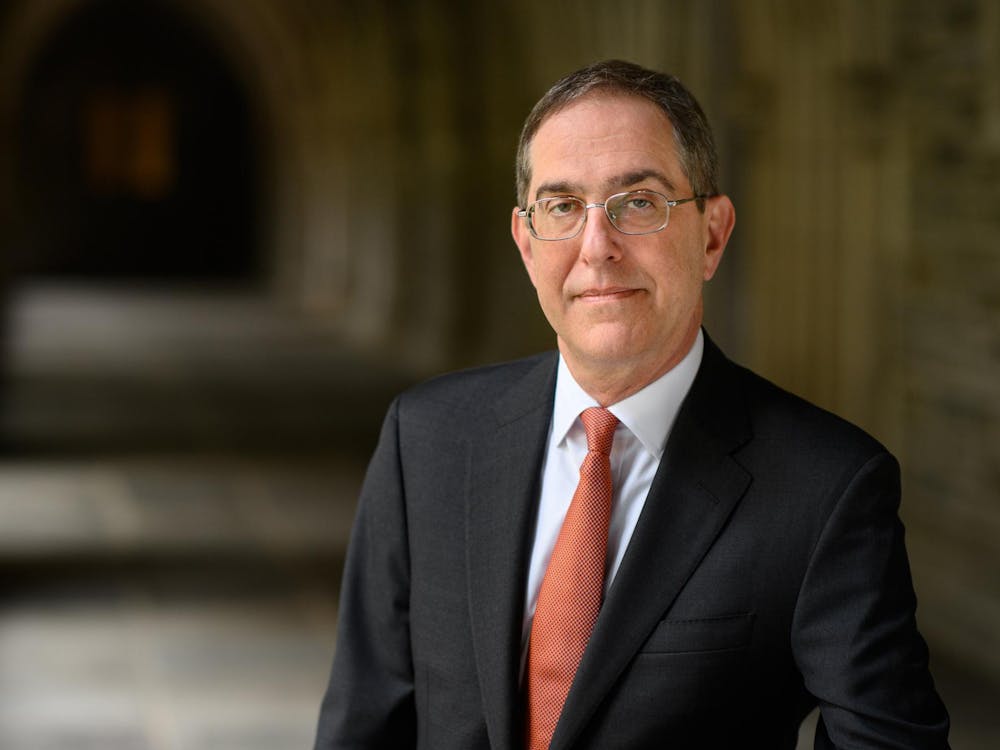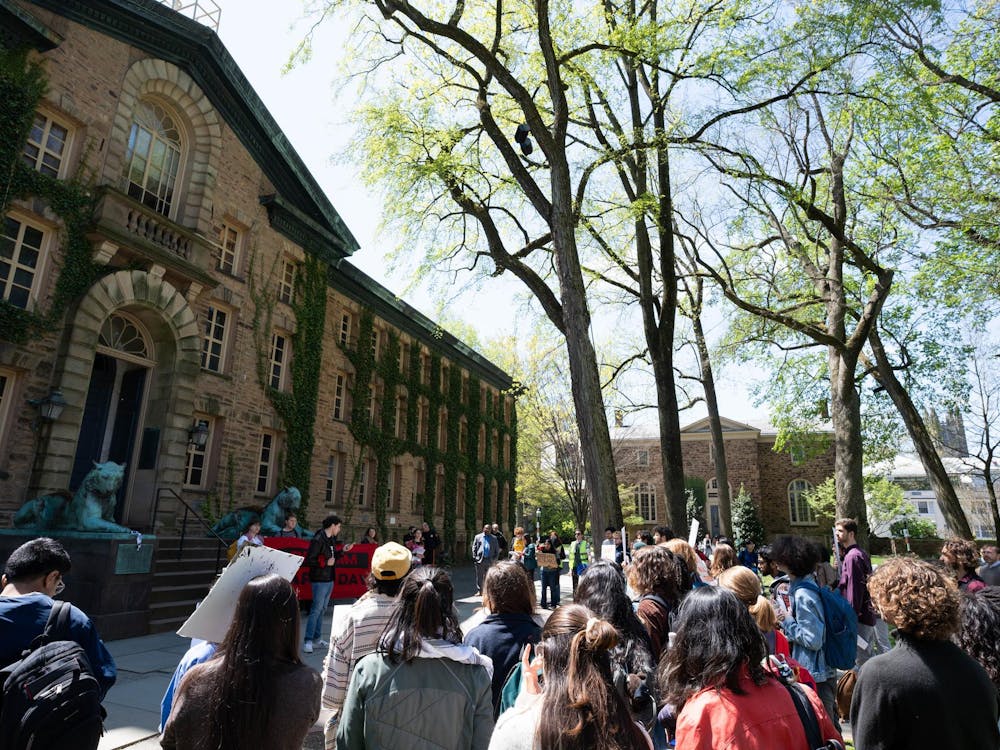I’m anti-Semitic.
Well, at least, that’s what people were saying. I’d noticed in recent weeks that certain friends had seemed more distant than usual, but I blew it off. I didn’t realize the reason for the coldness until I found out that a friend had considered some of my comments overly critical of Israel and was telling people that I was anti-Semitic.
He was one of my first friends on campus: We were paired as lab partners and often had political discussions during class. Eventually, one of our topics turned to Israel. I expressed the beliefs that would cause my ostracism: that Israel’s building of settlements in the West Bank and Gaza was illegal, and, moreover, antagonistic to the peace process. I knew that having these feelings didn’t mean that I was anti-Israel, but my friend bought into the false dichotomy that has dominated conversations about Israel for too long: that to be pro-Israel meant to unilaterally support every Israeli policy and that to be anything else was to be anti-Israel, and even worse, anti-Semitic.
I was indignant after hearing my friend’s reaction, even hurt, but, above all, confused at how our friendly discussion had led to such a claim. How could one of my best friends here think of me as something that I consider so fundamentally abhorrent?
It was this experience during my freshman year that made me care so much about Israel.
I realized that the Israeli-Palestinian conflict is not something that people can just engage in casual debate about —at least not for those who feel intimately connected. To many Jews and many Palestinians, control of that small sliver of land bordering the Mediterranean is fundamentally connected to their personal identity. I naively came into the debate merely as a scholarly exercise —informed, interested, but disengaged.
From that experience with my friend, I realized that although I may not have grown up with a personal connection to Israel or Palestine, I could—should—still have a stake in these issues. I was actually in a perfect position to help resolve this conflict: Not identifying with either side was not an impediment, but in fact, an advantage.
Fortunately, around the same time as this realization, a group centered around ending the conflict was getting started. A few students, dismayed by the one-sided, “blindly supportive or bust,” nature of any campus debate concerning Israel, started a Princeton chapter of J Street U, the student branch of the national political advocacy organization working toward a two-state solution to the Israeli-Palestinian conflict.
On Tuesday, the president and founder of J Street and a Princeton alumnus, Jeremy Ben-Ami '84, gave a speech on campus calling for us —as Americans, as college students and as concerned individuals of all identities —to rise up for peace and pressure our public officials to continue to push for a final resolution to this conflict: a two-state solution.
Why two states? The answer requires only a brief look at Israel’s history: four wars, two Palestinian uprisings, persistent terrorist attacks and tens of thousands of deaths on both sides —Israeli and Arab. The entire 65 years of Israel’s existence starkly expose the infeasibility of peaceful coexistence within one state. Seeking a two-state solution to the Israeli-Palestinian conflict is not idealistic —it’s imperative. Just as Jews yearned for a state of their own, a Jewish democracy, in the land of their forefathers, so too do the Palestinians seek an independent state, where they are free to express their own national identity in their own ancestral homeland.
America is involved in many affairs around the world—perhaps too many. But this is not just another issue for America to intercalate itself into. America is already intimately involved. Since WWII, Israel has been the largest cumulative recipient of U.S. aid. America was instrumental in garnering global support for the establishment of a Jewish state. We have engaged in extensive diplomatic, economic and military cooperation with Israel ever since.
America has been integral in the peace process. In fact, the United States has brokered every negotiation between Israel and its Arab neighbors. This July, Secretary of State John Kerry convinced the Palestinian Authority and the Israeli government to restart stalled peace talks. This issue is too divisive for those directly involved; the role of the United States as a third-party facilitator is essential. Above all, the leaders of these governments look to the United States for support in making the tough choices necessary for peace.

A peaceful resolution to this conflict has eluded state actors for decades, but never before have we been been so close to peace. And it will only happen with our help. The American people need to pressure their leaders for continued engagement. Moreover, we, as Princeton students, need to be actively involved. Most civil rights movement activists were in their 20s; Vietnam War protests started on college campuses. We are fundamental in building the “great constituency for peace” that Secretary Kerry called for as essential to ending this conflict. Resolving this decades-old conflict could be our generation’s movement for justice.
J Street, spearheaded by Ben-Ami, is working to change our country’s broken politics on the issue, because without continued American leadership, the parties will never reach a peaceful resolution to the conflict. Join our efforts on campus in pushing for peace.
The question is not “Will America be involved?” but rather, “How will we shape America’s involvement?”J Street is shaping the conversation about the conflict to support peace and justice. Will you?
AJ Sibley is a sophomore from Yorktown, Va. He is a member of J Street U Princeton. He can be reached at asibley@princeton.edu.








